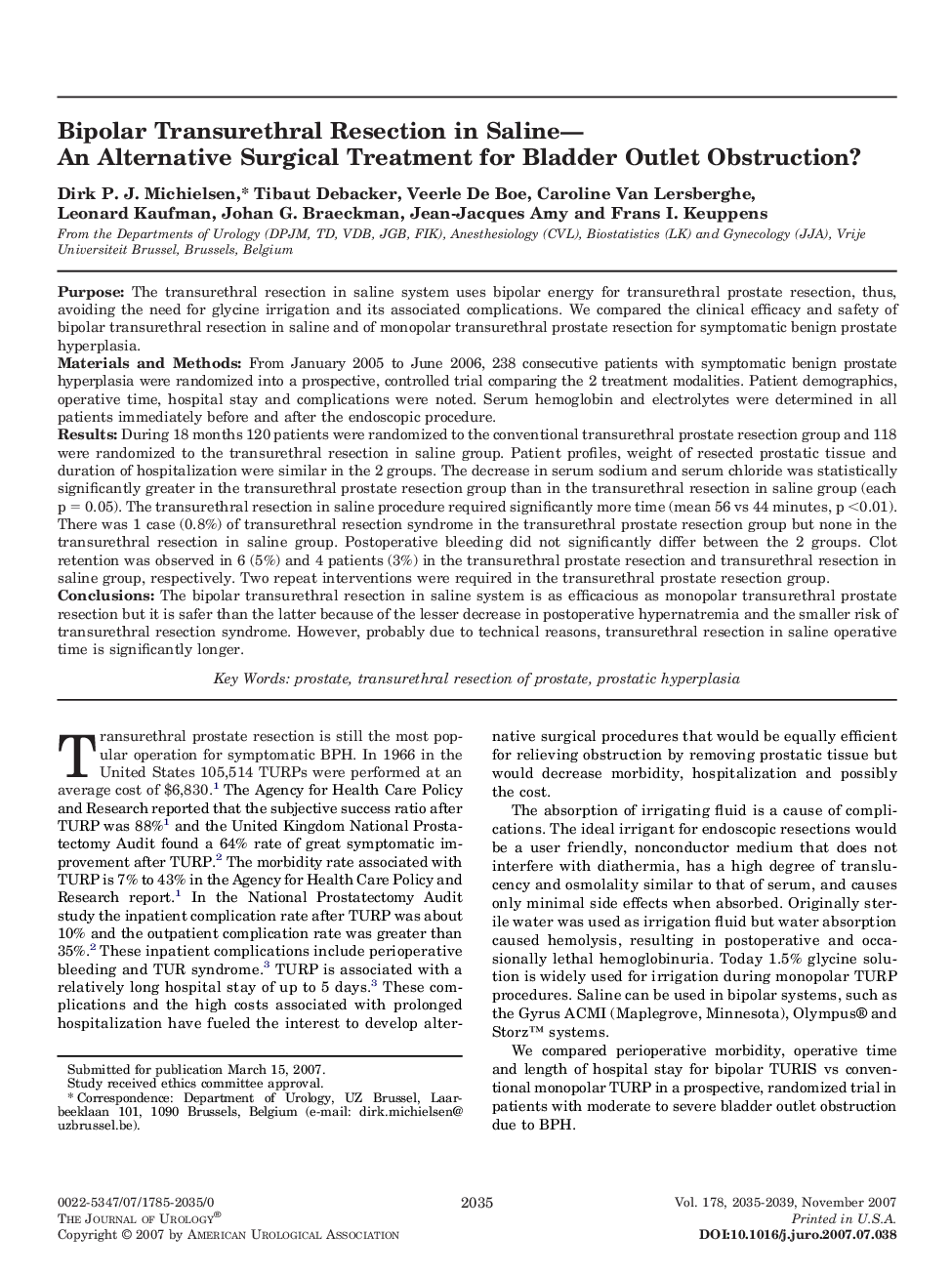| Article ID | Journal | Published Year | Pages | File Type |
|---|---|---|---|---|
| 3873258 | The Journal of Urology | 2007 | 5 Pages |
PurposeThe transurethral resection in saline system uses bipolar energy for transurethral prostate resection, thus, avoiding the need for glycine irrigation and its associated complications. We compared the clinical efficacy and safety of bipolar transurethral resection in saline and of monopolar transurethral prostate resection for symptomatic benign prostate hyperplasia.Materials and MethodsFrom January 2005 to June 2006, 238 consecutive patients with symptomatic benign prostate hyperplasia were randomized into a prospective, controlled trial comparing the 2 treatment modalities. Patient demographics, operative time, hospital stay and complications were noted. Serum hemoglobin and electrolytes were determined in all patients immediately before and after the endoscopic procedure.ResultsDuring 18 months 120 patients were randomized to the conventional transurethral prostate resection group and 118 were randomized to the transurethral resection in saline group. Patient profiles, weight of resected prostatic tissue and duration of hospitalization were similar in the 2 groups. The decrease in serum sodium and serum chloride was statistically significantly greater in the transurethral prostate resection group than in the transurethral resection in saline group (each p = 0.05). The transurethral resection in saline procedure required significantly more time (mean 56 vs 44 minutes, p <0.01). There was 1 case (0.8%) of transurethral resection syndrome in the transurethral prostate resection group but none in the transurethral resection in saline group. Postoperative bleeding did not significantly differ between the 2 groups. Clot retention was observed in 6 (5%) and 4 patients (3%) in the transurethral prostate resection and transurethral resection in saline group, respectively. Two repeat interventions were required in the transurethral prostate resection group.ConclusionsThe bipolar transurethral resection in saline system is as efficacious as monopolar transurethral prostate resection but it is safer than the latter because of the lesser decrease in postoperative hypernatremia and the smaller risk of transurethral resection syndrome. However, probably due to technical reasons, transurethral resection in saline operative time is significantly longer.
